Are you confused between mid cap, large cap, or small cap mutual funds? Don’t worry! In this detailed blog by Stock Market Vidya Nagpur, we will help you understand which type of fund suits your investment needs. Whether you are a beginner or an experienced investor, knowing the right cap fund can make a huge difference in your portfolio.
Understanding Market Capitalisation: Large Cap, Mid Cap & Small Cap
Before selecting the right mutual fund, it’s important to know what market capitalisation means. Market capitalisation is the total market value of a company’s outstanding shares. Based on this, companies are divided into three categories:
1. Large Cap Funds
Large cap funds invest in companies that are leaders in their industries. These are the top 100 companies listed on the stock exchange by market capitalisation. These firms are well-established, have a proven track record, and are considered financially strong.
- Examples include Reliance Industries, Infosys, HDFC Bank.
- They offer stability, regular dividends, and lower volatility.
- Ideal for investors who want steady returns with minimal risk.
Even during market downturns, large cap companies usually perform better than mid or small cap stocks. These funds are best for those looking for capital preservation and moderate growth.
2. Mid Cap Funds
Mid cap funds invest in companies that rank from 101st to 250th in terms of market capitalisation. These firms are typically in their growth phase and have the potential to become large cap companies in the future.
- They offer a balance between risk and return.
- Suitable for investors who are ready to handle short-term volatility for long-term growth.
- Mid cap companies are more sensitive to market changes, so prices can fluctuate more compared to large caps.
Mid caps can be rewarding if held over a medium to long-term period. They are good for investors who want to grow their wealth without taking extreme risks.
3. Small Cap Funds
Small cap funds invest in companies ranked below 250th by market cap. These are relatively smaller firms that are still developing and growing in their sectors.
- They have high growth potential but also high risk.
- Returns can be multi-bagger if timed and selected correctly.
- Suitable for aggressive investors who can invest for more than 10 years.
These funds can deliver extraordinary returns, but they are highly volatile. Small cap funds may see rapid ups and downs based on market sentiment, business cycles, and liquidity.
Why Market Cap Matters in Mutual Fund Investing?
Market capitalisation helps classify funds based on the size and nature of the companies they invest in. The category you choose directly impacts the fund’s performance, volatility, and suitability for your goals.
- Large cap funds are safer and less volatile. Best for conservative investors.
- Mid cap funds provide better returns than large caps but come with moderate risk.
- Small cap funds are risky but have the potential for very high returns.
By knowing how market cap affects risk and return, you can make better decisions. Your age, income, and financial goals will determine which cap fund suits you best.
Which Cap Fund is Right for You?
1. If You Are a Conservative Investor
Choose Large Cap Funds. They offer stable returns with lower risk. Perfect for those nearing retirement or looking for predictable income.
2. If You Are a Balanced Investor
Go with Mid Cap Funds. You get a mix of stability and growth. They work well if you can tolerate some ups and downs in the short term.
3. If You Are an Aggressive Investor
Pick Small Cap Funds. They carry high risk but can also give massive returns over time. Suitable for young investors with long investment horizons.
How to Build a Diversified Portfolio?
Instead of investing only in one category, it’s smart to build a diversified portfolio. Diversification spreads the risk and increases the chances of overall returns.
Here’s how you can divide your investments:
- 50% in Large Cap – For stability and regular growth
- 30% in Mid Cap – For better growth potential
- 20% in Small Cap – For high returns over the long term
This blend helps reduce risk and offers balanced returns. You can change the ratio depending on your age and goals.
Key Factors to Consider Before Investing
1. Investment Horizon
Know how long you want to stay invested. Long-term goals (10+ years) can absorb volatility better.
2. Risk Appetite
If you can’t sleep during market crashes, avoid small caps. Know your emotional tolerance.
3. Fund Manager’s Experience
A good manager can protect your money during bad times and grow it during good times.
4. Past Performance
Check how the fund has performed in the last 3, 5, or 10 years. Don’t judge by short-term returns.
5. Expense Ratio
This is the annual fee charged by the fund house. Lower expense means more returns for you.
6. Consistency
Look for funds that consistently perform well, not just during bull markets.
How Stock Market Vidya Nagpur Helps You?
Established in 2004, Stock Market Vidya Nagpur is a trusted name in central India for stock market education. Previously known as IES Share Market Training Institute, this institute is led by expert trader and trainer Mr. Prashant Sarode, who has over 25 years of market experience and 21+ years of teaching experience.
We are more than just a training centre – we are a complete stock market knowledge hub. With a mission to improve India’s financial literacy, our courses are designed for everyone – students, housewives, professionals, and retirees. Our approach combines theoretical learning with real-time practical training so that participants can confidently make trading and investment decisions.
Our One-Month Share Market Course Covers:
- Fundamental Analysis – Learn to assess company strength through ratios, financials, economic trends
- Technical Analysis – Understand price trends, chart patterns, and indicators to predict movements
- Option Chain Analysis – Learn to decode derivatives data for accurate market direction
- F&O Strategies with Hedging – Discover safe and smart trading in Futures & Options
- Intraday, Short-term, and Long-term Trading – Master all time frames with practical setups
- Option Trading Strategies – Low risk and high reward methods to use in daily trades
We provide After Course Support to all our students, helping them stay updated and confident even after completing the course.
More than 6000+ participants have already benefited from our personalised training, with many becoming full-time traders, investors, and market professionals. We focus on practical learning, emotional discipline, and money management, which are essential for success in the stock market.
Why Choose Stock Market Vidya Nagpur?
- Oldest stock market institute in Central India
- Led by real market professional, not marketing expert
- Practical-oriented classes with real charts and trades
- Affordable courses with maximum value
- Continuous guidance through After Course Support
- Honest education with a mission to build financial independence
Our goal is not just to teach trading, but to make you financially confident and independent.
FAQs – Frequently Asked Questions
What is a mutual fund and how does it work?
A mutual fund collects money from many investors and invests it in stocks, bonds, or other securities. A fund manager professionally manages these investments to earn returns for the investors.
Which is safer: Large, Mid, or Small Cap Funds?
Large cap funds are the safest as they invest in financially strong companies. Mid and small cap funds carry more risk but may give higher returns over time.
Can I invest in all three types of cap funds at once?
Yes, combining large, mid, and small cap funds helps build a diversified portfolio, balancing risk and return.
What is NAV in mutual funds?
NAV or Net Asset Value is the price of one unit of a mutual fund. It changes daily based on market movements.
How long should I invest in mid or small cap funds?
To get the best returns, invest in mid and small cap funds for at least 5–10 years. These funds need time to grow.
Can mutual funds give guaranteed returns?
No. Mutual funds do not offer guaranteed returns as they depend on market performance.
Is SIP better than lump sum investment?
SIP (Systematic Investment Plan) helps in disciplined investing and reduces risk by averaging cost. It’s better for most investors.
Do mutual funds have any lock-in period?
Some do, like ELSS (Equity Linked Saving Schemes) which have a 3-year lock-in. Regular equity mutual funds usually don’t have a lock-in.
How much should I invest in mutual funds monthly?
It depends on your income, goals, and expenses. Start with what’s affordable and increase it gradually.
What is expense ratio?
It’s the annual fee charged by a fund house for managing your money. Lower expense ratio means more returns for you.
How do I know if a mutual fund is performing well?
Look at long-term returns, consistency, fund manager’s track record, and peer comparison.
Should I stop my SIP if markets are falling?
No. Continue your SIP during market falls to buy more units at lower prices. It benefits you in the long run.
Can I withdraw my mutual fund investment anytime?
Yes, except in locked funds like ELSS. You can redeem your mutual funds any time based on your needs.
Is mutual fund income taxable?
Yes, based on type and holding period. Short-term and long-term capital gains are taxed differently.
What happens if the fund manager changes?
It can affect the fund’s performance. Always review the fund’s strategy and performance after a manager change.
Can I lose money in mutual funds?
Yes. Mutual funds are market-linked. However, risks reduce with diversification and long-term holding.
How are mutual funds different from stocks?
Stocks are direct investment in one company. Mutual funds invest in a basket of stocks, offering diversification.
What is asset allocation?
It’s the process of spreading your investments across different asset classes like equity, debt, etc., to reduce risk.
Are mutual funds suitable for tax savings?
Yes. ELSS mutual funds qualify for tax deductions under Section 80C of the Income Tax Act.
Where can I learn more about investing in mutual funds and the stock market?
Join Stock Market Vidya Nagpur to gain full knowledge of mutual funds, technical analysis, and stock market trading with practical exposure.
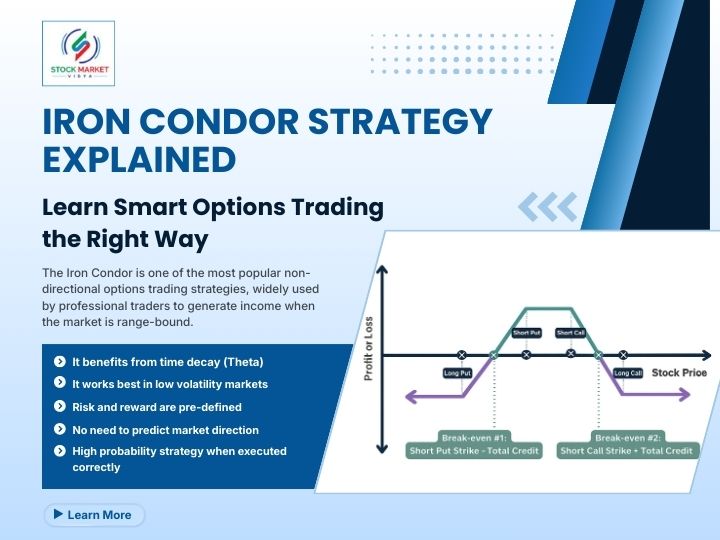
When traders think about options trading, most beginners focus only on buying Call or Put options and hoping the market moves strongly in one direction. But experienced traders know one…
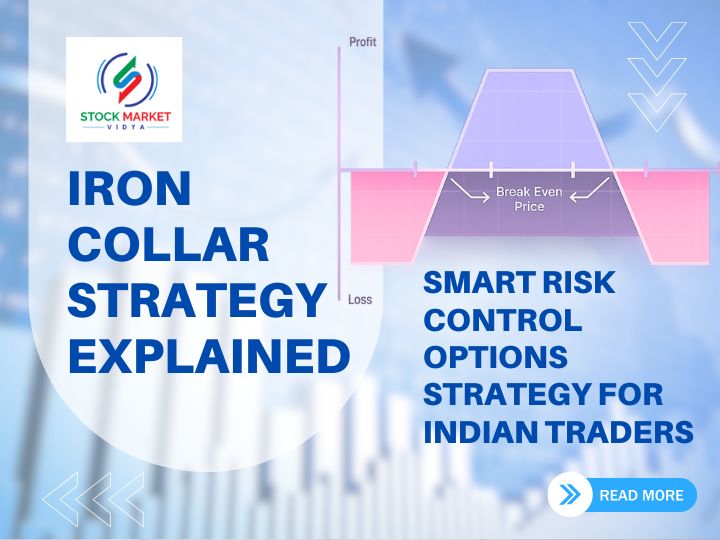
Options trading is not only about making profits—it is also about protecting capital, managing emotions, and controlling risk. Many traders enter the options market with high expectations but without a…
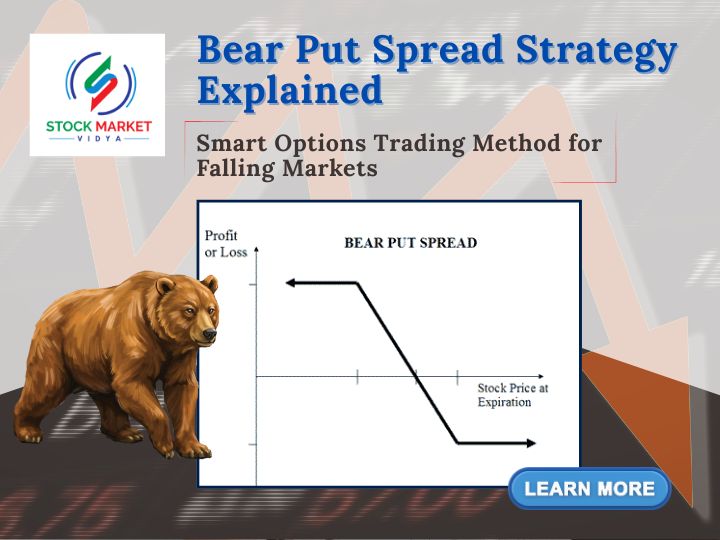
In the stock market, making money is not limited to rising prices. Experienced traders know that market downturns also create profitable opportunities—but only when the right strategy is used. One…

Why Smart Traders Look Beyond Simple Buy and Sell Most beginners enter the stock market with one simple idea—buy shares at a lower price and sell them at a higher…
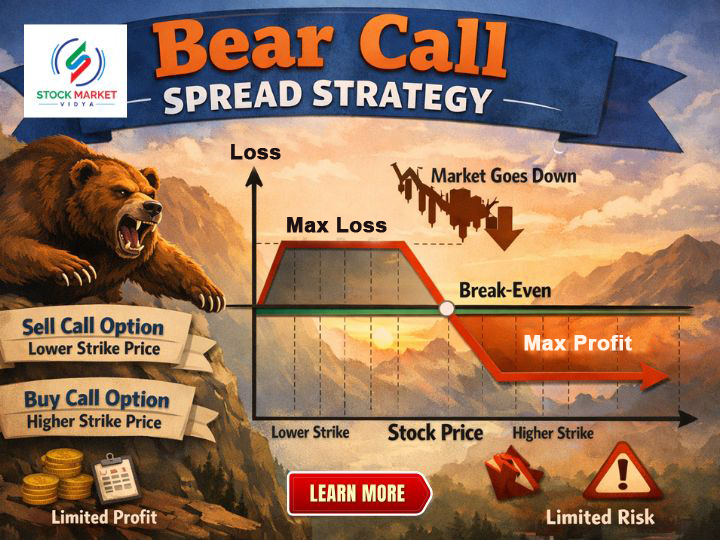
Options trading is often misunderstood as risky, complicated, and suitable only for professional traders. In reality, when used with proper understanding, options strategies can help traders control risk and trade…
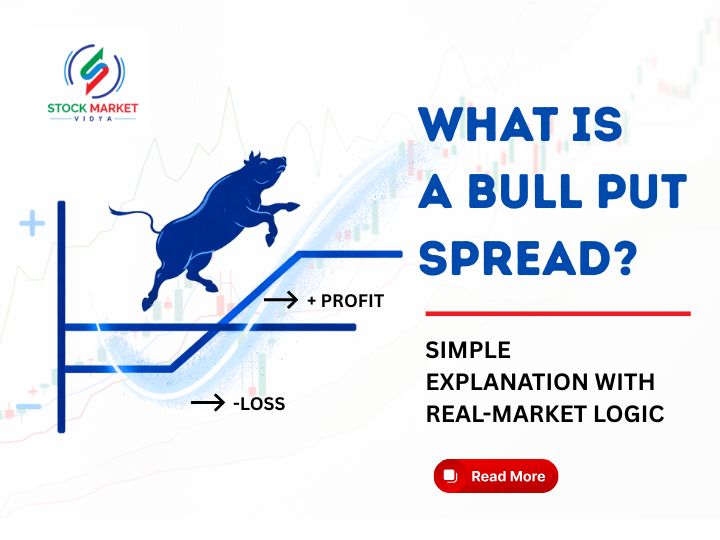
Why Every Options Learner Should Understand Bull Put Spread When people hear the word options trading, most immediately think of high risk and fast losses. This fear is not completely…

Popular World Indices Explained: A Beginner’s Guide to Global Stock Markets The stock market is no longer limited to one country. Today, financial markets are deeply connected across continents. A…

When traders search for a low-risk bullish options strategy, one name consistently appears in professional discussions — Bull Call Spread. For many beginners and intermediate traders, the biggest question is…

Commodity trading is no longer limited to large traders or corporate hedgers. Today, even individuals with small capital can participate in the commodity market—provided they learn the right way. In…

Every morning before the Indian stock market opens, one important question runs through the mind of traders and investors alike — How will the market open today?Will it be positive,…


